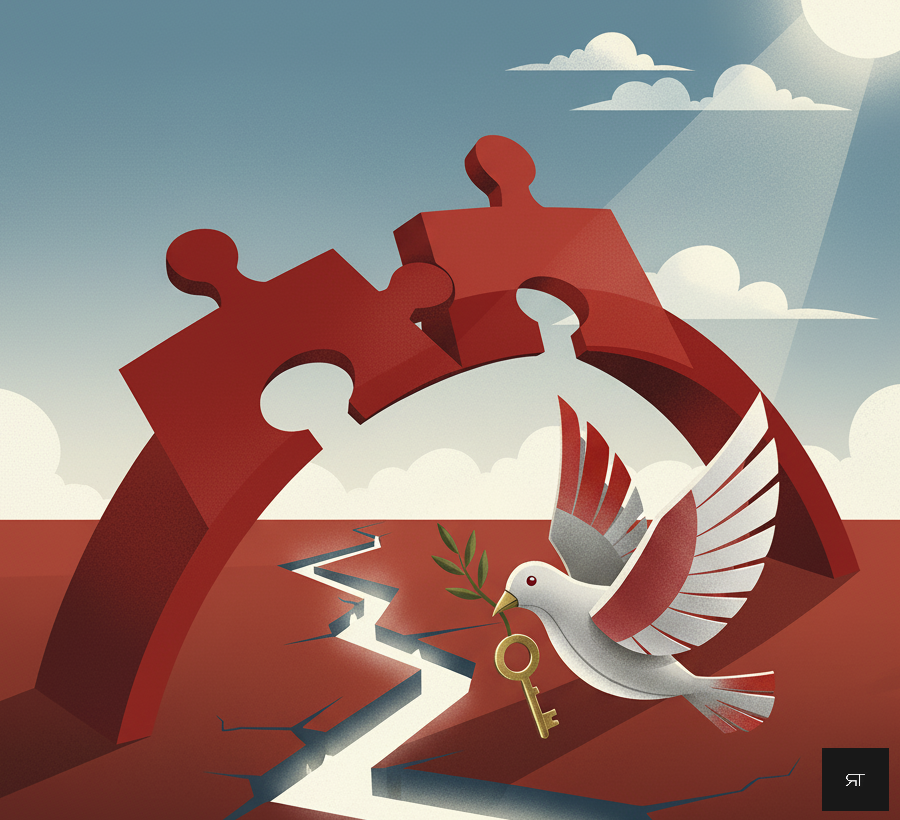A neutral analysis of political, ideological, and structural barriers to the Trump administration’s peace proposal.

The peace framework proposed by U.S. President Donald Trump aimed to end hostilities between Israel and Hamas by combining ceasefire measures, economic incentives, and regional mediation. Despite its ambition, the plan underestimates entrenched ideological positions, fragmented Palestinian representation, mediator credibility constraints, and implementation risks—factors that comparative peace-process research identifies as decisive.
1. Ideological incompatibility
Hamas does not recognize Israel’s legitimacy and prioritizes armed resistance; Israel treats Hamas as a terrorist actor to be contained or dismantled. Absent reciprocal legitimacy, negotiations on sovereignty and coexistence lack a viable foundation.
Peace agreements rely on a minimum level of mutual recognition. Without it, negotiations collapse into tactical pauses rather than long-term settlements. Transformative peace requires a shift in legitimacy, not just tactical compromise.
2. Fragmentation of Palestinian representation
The Trump plan largely bypassed the Palestinian Authority (PA), the internationally recognized representative of the Palestinian people. By implicitly engaging with Hamas while marginalizing the PA, the proposal deepens the political split between the West Bank and Gaza. Without internal Palestinian unity, any peace agreement lacks credibility and implementation capacity.
Durable peace agreements depend on unified leadership. As long as the Palestinian Authority and Hamas pursue separate agendas, no framework can represent the Palestinian people as a whole.
3. Misplaced emphasis on economic incentives
The plan’s emphasis on economic growth and infrastructure investment misunderstands the nature of the conflict. The struggle is not primarily about poverty; it is about sovereignty, self-determination, and historical justice. Economic aid cannot substitute for political compromise. Previous attempts to “buy peace” through development funding have failed because they ignored these fundamental issues.
4. Perceived bias of the mediator
The credibility of the United States as a mediator was undermined before negotiations even began. The Trump administration’s decision to move the U.S. embassy to Jerusalem and cut funding to UNRWA was interpreted by Palestinians as clear evidence of pro-Israeli bias. Effective mediation requires both power and perceived impartiality; the U.S. under Trump possessed the former but lacked the latter.
5. Implementation and enforcement challenges
The proposed multi-phase process—ceasefire, disarmament, reconstruction, and administrative reform—faces daunting implementation challenges. The security environment in Gaza remains volatile, and trust between the parties is virtually nonexistent. Without robust monitoring and enforcement mechanisms, compliance with the plan’s provisions would likely erode rapidly.
6. Lack of regional and legal anchoring
Successful peace agreements in the Middle East have historically relied on regional buy-in and international legal legitimacy. The Trump plan’s lack of clarity on Palestinian statehood, refugee rights, and international law left it isolated from both regional actors and global institutions. Without legal grounding and multilateral support, such initiatives struggle to achieve lasting acceptance.
Conclusion
While the Trump peace plan incorporated some pragmatic components—such as reconstruction, governance reform, and regional diplomacy—it neglected the essential political and ideological foundations of peace. Without mutual recognition, unified Palestinian representation, credible mediation, enforceable mechanisms, and a clear legal framework, the proposal remains a symbolic gesture rather than a viable roadmap to peace.
It appears that Hamas is using the deal as a breathing space and an opportunity to retreat with minimal loss of face. Israel is releasing 2,000 prisoners, and Hamas can regroup and strengthen. The leverage they had—the Israeli hostages—is now gone. The question is whether the majority of Palestinians still recognize Hamas’s legitimacy or whether they are weary and ready to hand over governance to the international community, with Israel playing a significant role in that process.
—
References and Further Reading
International Crisis Group — Israel/Palestine analyses
Carnegie Endowment for International Peace — Middle East and North Africa Program
https://carnegieendowment.org/programs/middleeast
Chatham House — Middle East and North Africa Programme
https://www.chathamhouse.org/topics/middle-east-north-africa
Brookings Institution — Middle East Studies
https://www.brookings.edu/topic/middle-east-north-africa
United Nations — Reports on Israel–Palestine and humanitarian law


